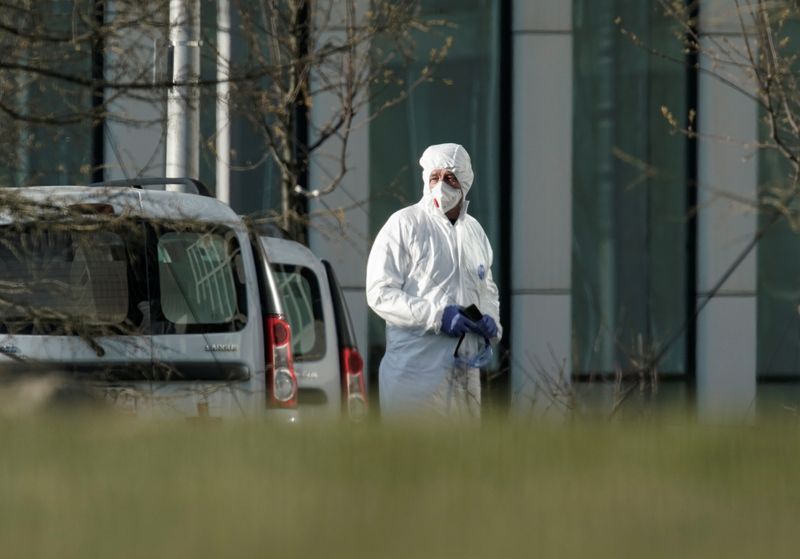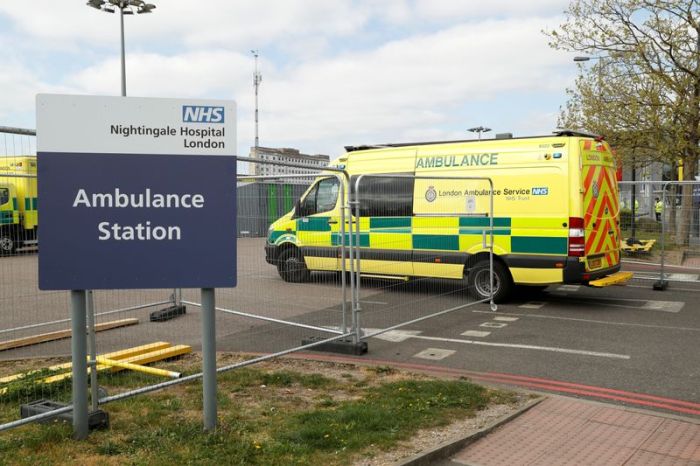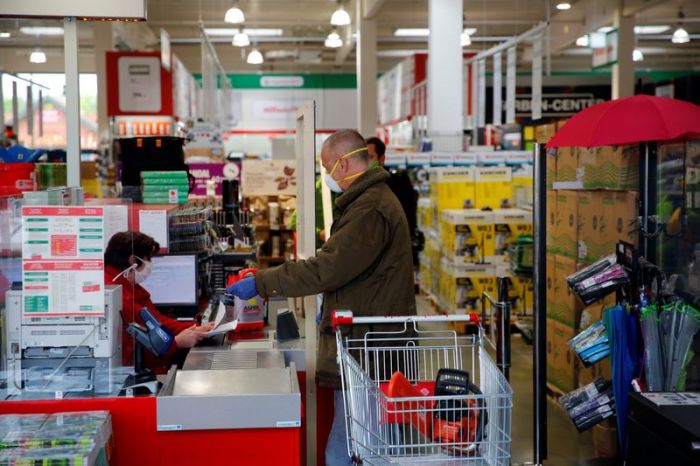MOSCOW (Reuters) – Moscow authorities said on Tuesday they had revoked 900,000 travel permits for use during the coronavirus lockdown because they contained false data, fuelling fears that the state was using the epidemic to tighten its surveillance of citizens.
Like the residents of many other regions, 12.7 million Muscovites have been told not to leave home except to buy food, get urgent medical treatment or walk the dog. From Wednesday, anyone travelling by car or public transport will need to be able to show a permit in the form of a machine-readable QR code.
Russia recorded 2,774 new cases of the virus on Tuesday, a record daily rise, bringing its nationwide total to 21,102. Officials say 170 people have died.
Moscow officials said 3.2 million lockdown passes had already been issued, either for one-off trips or for regular commuting to essential places of work that have been allowed to stay open.
But 900,000 permits are to be revoked because people applied using false information such as digits instead of surnames or incorrect passport or tax numbers, Moscow’s coronavirus task force said.
Internet freedom advocates say the applications could be used to harvest data not already held, such as addresses. Some people keep these from the authorities if they can because they fear being scammed or subjected to various kinds of extortion if the information is stolen or illegally bought or passed on.
“Of course, all these problems … such as questions of privacy and inappropriate surveillance and use of confidential data have come to the fore,” said Sarkis Darbinyan, a lawyer for Roskomsvoboda, a group that monitors internet freedom.
He and others say it is unclear how the data will be used – or protected.
Officials say such fears are unfounded, and that the system is simply needed to help enforce lockdown measures.
Traffic police have set up checkpoints on roads coming into the city and said they will not let anyone in without a permit. The region surrounding Moscow has its own permit scheme.
City official Eduard Lysenko said false data entry would soon be treated as a civil offence:
“If any data is entered incorrectly or if it turns out to be false, the pass will be cancelled, and citizens who provide the false information will be held administratively liable.”
The website issuing permits was briefly unavailable on Monday because of what officials said was sustained hacking attacks, but it was online again by the end of the day.
Hundreds of thousands of Muscovites left for the countryside at the end of March, just before the start of city-wide closures and restrictions on movement.
(Additional reporting by Gleb Stolyarov; Editing by Kevin Liffey)

























